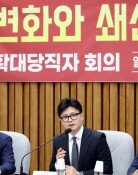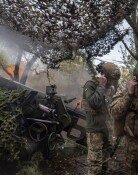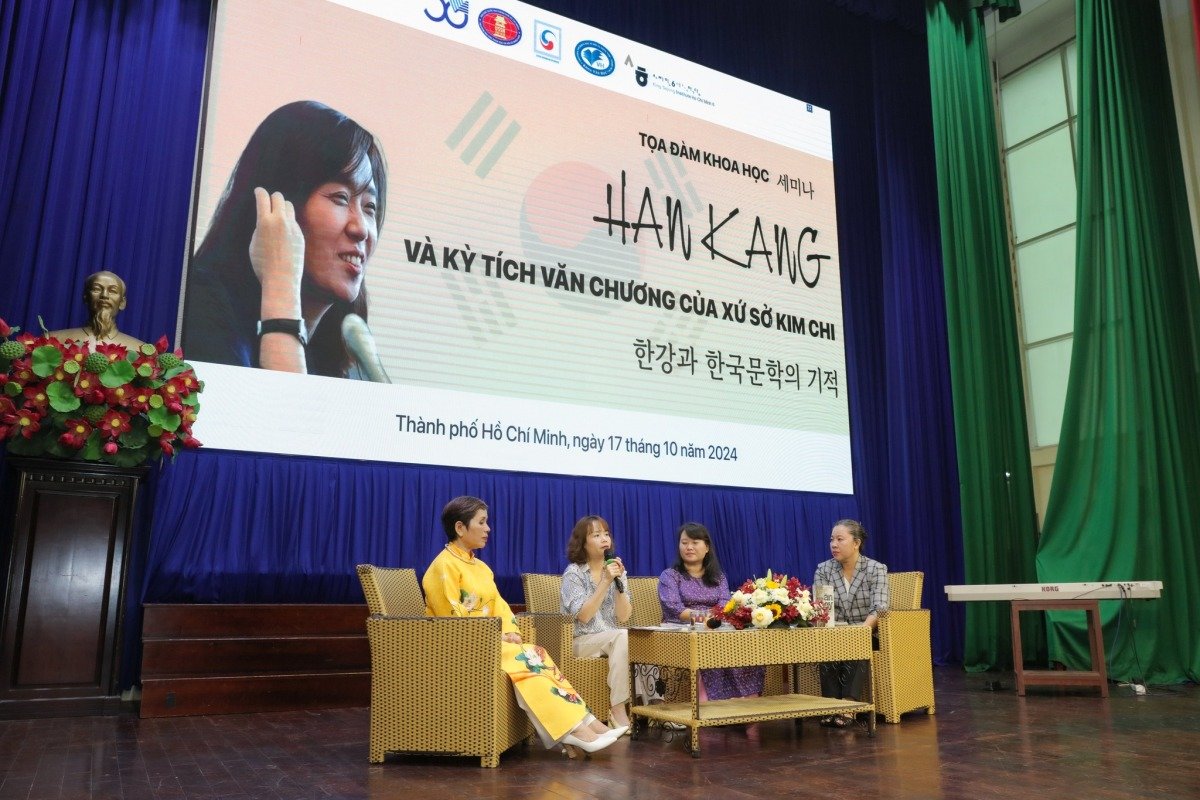Presidential address to AEI-CFR members
Presidential address to AEI-CFR members
Posted March. 09, 2001 15:38,
President DeMuth, Vice President Dobriansky, distinguished members of the American Enterprise Institute and the Council on Foreign Relations, distinguished guests, ladies and gentlemen,
It gives me great pleasure to have this opportunity to speak to the American Enterprise Institute and the Council on Foreign Relations, both world-renowned institutions that have had much input into America`s leadership in enhancing global peace and prosperity.
I thank you, President DeMuth of AEI and Vice President Dobriansky of CFR, for giving me this opportunity. And thank you, Ambassador Lilly, for such a generous introduction.
I am delighted to be given this chance to share my thoughts with all of you on the task of bringing lasting peace to the Korean peninsula, and I would be very appreciative of your feedback.
Ladies and gentlemen,
Over the past half-century, the Republic of Korea and the United States have nurtured a solid security alliance and comprehensive partnership, based on the shared values of democracy and market economy.
In the early 1950s, South Korea was able to repel communist aggression with the help of the United States and other allies of the free world. Since then, while pursuing democratization and economic development, it has matured as a key ally of the United States in East Asia.
And now, the close cooperative ties between our two countries have opened up the opportunity to end the Cold War and open a new era of lasting peace on the Korean peninsula.
On the strength of such ties, my government has been promoting a policy of reconciliation and cooperation toward North Korea.
The goal is two-fold.
The first is to end the Cold War so as to enable the two Koreas to live together in peace, that is, to eliminate the threat of war forever on the Korean peninsula.
The second is to expand inter-Korean exchanges in the political, economic, social, cultural, sports, humanitarian and other areas in ways that benefit both sides and build trust between them.
Unification would be beyond these goals. After a period of the two sides living in peaceful coexistence and exchanges while recognizing the difference between their systems, when both feel comfortable enough to unify, then unification can be sought in earnest. That would be the safest way. Thus, the approach has been a gradual one, beginning with the issues on which South and North Korea can most easily reach agreement.
The policy of reconciliation and cooperation has proceeded in the direction of getting North Korea to accept the need for change. As a result, I am happy to report to you, there has been much by way of positive advances.
Needless to say, the basis of the policy has been our solid security stance. Just as the credible deterrence of the ROK-US combined defense posture has prevented war on the Korean peninsula for half-a-century, I firmly believe that reconciliation and cooperation with North Korea is possible when backed up by a solid security stance.
Our aim is to go beyond the passive concept of peace of merely deterring war, to realizing active peace that would take root as inter-Korean exchanges and cooperation and interdependence deepen.
Distinguished guests,
Since the inter-Korean Summit of June last year, North Korea has been moving in the direction of change.
It has stopped slandering us and provoking us militarily, and has been forthcoming about South-North exchanges and cooperation. Meetings between the authorities of the two sides at the ministerial and other levels have frequently been held. The defense ministers of the two sides have met, pledging never to engage each other in war. The ardent aspiration of our people for the reunion of the 10 million members of separated families has begun to be addressed through exchanges of visits. Agreements have also been reached on mail exchanges and meeting centers for these families.
Legal instruments for South-North economic cooperation have been worked out, such as an agreement on investment protection. Inter-Korean trade, which recorded a mere $18 million in 1989 has gone up to $400 million last year. Railway and road between the South and North are being re-linked. These developments, I believe, would not have come about without North Korea`s willingness to change.
In its foreign relations, too, North Korea has been changing, opening diplomatic ties with Italy, the Philippines, Australia and the United Kingdom last year. This year, it has already added the Netherlands, Belgium, Canada, and Spain to the list, and is talking with many other countries toward normalization of ties. North Korea`s incorporation into the international community is likely to pick up further speed.
In light of the South-North enmity and military stand-off, starting with a fratricidal war five decades ago and perpetuated through the concentration of two million troops along the demilitarized zone since then, the recent changes are truly wondrous and full of meaning. The ice has begun to melt in the last remaining Cold War on earth.
I am aware that some read the changes on the part of North Korea as being merely temporary or tactical.
Whether the changes are strategic or tactical, one thing is certain. For North Korea, change is not a matter of choice but of survival. Without opening and reform to bring in outside assistance, it will be difficult for North Korea to overcome its economic difficulties. If we are to go by the examples of China and Vietnam and their gradual changes through opening and reform, North Korea should be seen as taking the first steps toward change.
Chairman Kim Jong-il of the North Korean National Defense Commission began the new year by emphasizing the need for "new thinking". In January, he made a four-day visit to Shanghai, touring the city`s high-tech establishments and displaying keen interest in openness and reform for economic reconstruction. The Chairman praised Shanghai`s transformation as `the opening of a new world.`
North Korea today is not the North Korea of the past, which had criticized Chinese reforms and openness as a corruption of socialism. We cannot say for certain whether North Korea will follow in China`s exact lead, but it is surely opening up.
We must not lose this opportunity. We must assist so that North Korea can continue on the path of change. We must help so that it does not return to its old ways, which would be unwelcomed by other countries and would not be good for North Korea itself.
In this regard, South Korea and the United States have the biggest roles to play. It is vitally important that South Korea and the United States work closely together.
Ladies and gentlemen,
North Korea`s top priority is to build better ties with the United States. It seems to be well aware that for assurance of its security and economic assistance, improved relations with the United States are essential.
When I was in Pyongyang last year, Chairman Kim concurred with my reasoning on the necessity of the continued presence of the US forces on the Korean peninsula. He has publicly taken back North Korea`s persistent call of the past fifty years that the US Forces in Korea must withdraw. He also said that he would resolve the missile issue with the United States through negotiation. At the end of last year, he invited the President of the United States to visit. Clearly, North Korea is keenly interested in improving relations with the United States.
North Korea`s nuclear and missile issues are important matters to us, as they are to the United States.
They must be resolved, and I believe they will be. The United States is expected to continue to take the lead in these matters, but we are also doing what we can. In Pyongyang, I conveyed our position on these issues in writing to the North Korean side, urging their early resolution.
The ROK-US coordination is vital in inducing North Korea`s change and building a regime of peace on the Korean peninsula. There will be synergy in the complementary role- sharing between South Korea and the United States.
Without progress between the US and North Korea, advances in South-North Korean relations will be difficult to achieve, and it will be impossible to end the Cold War and establish a system of lasting peace on the Korean peninsula.
Along with the ROK-US alliance, the ROK-US-Japan trilateral coordination is also very important.
Furthermore, the support of China and Russia are also needed to establish a peace regime on the Korean peninsula. Fortunately, both China and Russia are fully supportive of our policy of inter-Korean reconciliation and cooperation.
With consistency, and building upon the ROK-US-Japan trilateral coordination of policy, we should stay the course of comprehensive engagement of North Korea, giving what we can and taking what we must.
By doing so, we will be increasing North Korea`s dependence on us and expanding the chances of nudging North Korea along the road of cooperation for peace on the Korean peninsula and its incorporation as a responsible member of the international community. I sincerely believe that in dealing with North Korea, engagement, against the backdrop of a solid security stance, is the best course to take.
Ladies and gentlemen,
I came to office three years ago when Korea was struck by a financial crisis. I joined forces with the Korean people to overcome the trial. I remember with gratitude the assistance that came from the United States during the difficult moments.
In Korea, we have actively promoted restructuring in our corporate, banking, pubic and labor sectors so as to strengthen the texture of our market economy. We have also endeavored to keep abreast of the changing times. With half of the population now linked up with the Internet, we are aspiring to become a global player in the information age.
For the economic reforms to bear greater fruit, the understanding and cooperation of the United States have been and will continue to be vital. Inter-Korean economic cooperation to assist North Korea along the road of openness and reform requires the sustained growth of our economy. We will need all the cooperation and encouragement we can get from the US government and people, and their leading thinkers as are represented here.
Ladies and gentlemen,
Chairman Kim Jong-il`s visit to Seoul later this year should be made into an occasion to get the peace process on the Korean peninsula into gear.
During the past Cold War era, the Korea-US alliance made it possible for democracy and market economy to take firm root in Korea. Likewise, it will provide the central force in the process of building a peace regime on the Korean peninsula.
Change means challenge as well as opportunity.
So that the momentum of change in North Korea can be made into an opportunity to end the Cold War and settle peace on the Korean peninsula, I sincerely hope that our two countries, South Korea and the United States, will be able to muster the best of our collective strength and wisdom.
Thank you for your kind attention.
Headline News
- Presidential Office signals possible offensive weapons aid to Ukraine
- N. Korea reportedly prepares military balloon attack with Russia
- Medical associations join bipartisan talks on expanding medical school quotas
- Former world No. 1 Ko Jin-young returns to LPGA
- Kakao unveils AI service ‘Kanana’ at 'if Kakao AI 2024'







